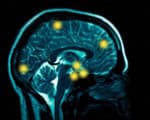Bipolar disorders guide
Bipolar disorders
What is it?
Also called manic-depressive disorder, bipolar disorders are characterised by extreme fluctuation in moods ranging from acute depression to hysterical elation. Persons suffering from this disorder may have weeks to months of either very sad mood or an elated euphoric mood. Mood changes are associated with the behavioural changes one might expect with each of these mood states e.g. Euphoric persons may need less sleep, indulge in risky impulsive behaviours etc.
What are the causes?
The exact cause of the disorder is unknown. Bipolar disorders seem to be inherited, that is relatives of individuals with bipolar disorders are more at risk of developing the same than the general population.
What are the symptoms?
The symptoms of mania and depression alternate in individuals with bipolar disorder. However, some people have only manic episodes without any depressive spells and vice versa. In order for the diagnosis of bipolar disorder to be made the person must have at least one manic episode. The disorder often starts with a period of depression, which may last for a few months. A shorter period of mania may follow before the cycle is repeated. The illness seems to manifest itself in early adulthood the late twenties to early thirties being typical. A manic phase is characterised by: Irritability Extreme elation Delusions of grandiosity and high self esteem Hyperactivity and increased distractibility Surge of ideas often creative, associated with increased productivity at work Excessive talking Decreased need for sleep, the person often getting by on just a few hours Destructive and often bizarre behaviour.The symptoms of a depressive phase are in sharp contrast to those in the manic phase, and the personality of the person seems to undergo a drastic change. Symptoms of depression include: Extreme sadness and irritability Decreased mental activity and lethargy Silence and no expression of emotions Chronic fatigue Lack of concentration, interest and curiosity of the surrounding environment Social withdrawal Decreased libido
How is the diagnosis made?
The disorder is brought to light when the patient has such a depressive or manic episode. A person may have several depressive episodes before a manic spell and this often delays the diagnosis. A psychologist or a psychiatrist will take into account several factors including a family history, the age of onset and medical conditions before arriving at a diagnosis. There is unfortunately no physical test such as imaging or blood test which can confirm the diagnosis. It is based entirely on an observation of behaviour and a history. Hospitalization may be necessary and helps with staff being able to monitor behaviour round the clock. A complete medical, family and chronological history of the individual is taken.
What is the treatment?
The primary medications used to treat bipolar disorder, especially in prevention of future episodes are mood stabilizers. Lithium and Valproate are the most commonly used. Often manic spells require the addition of an antipsychotic medication or a benzodiazepine. Depressive spells may require the addition of an antidepressant. Electro-convulsive therapy (ECT) or shock treatment may be used to treat severe depression or mania. It is extremely fast and effective and has no lasting side effects. Psychotherapy is an important part of treatment to help the person and family cope with this chronic illness.The prognosis of people with bipolar disorder is good with adequate treatment compliance. However, few people are willing to consider lifelong medication until they have had several episodes. There is a high rate of return of symptoms when medication is discontinued. Some people may have side effects from medications but there are several alternatives in each type of medication and usually some are better tolerated by an individual. Constant care by a psychiatrist is essential to maintain optimal treatment.
Bipolar disorders News More News
................... Advertisement ...................
................... Advertisement ...................
................... Advertisement ...................
................... Advertisement ...................


























